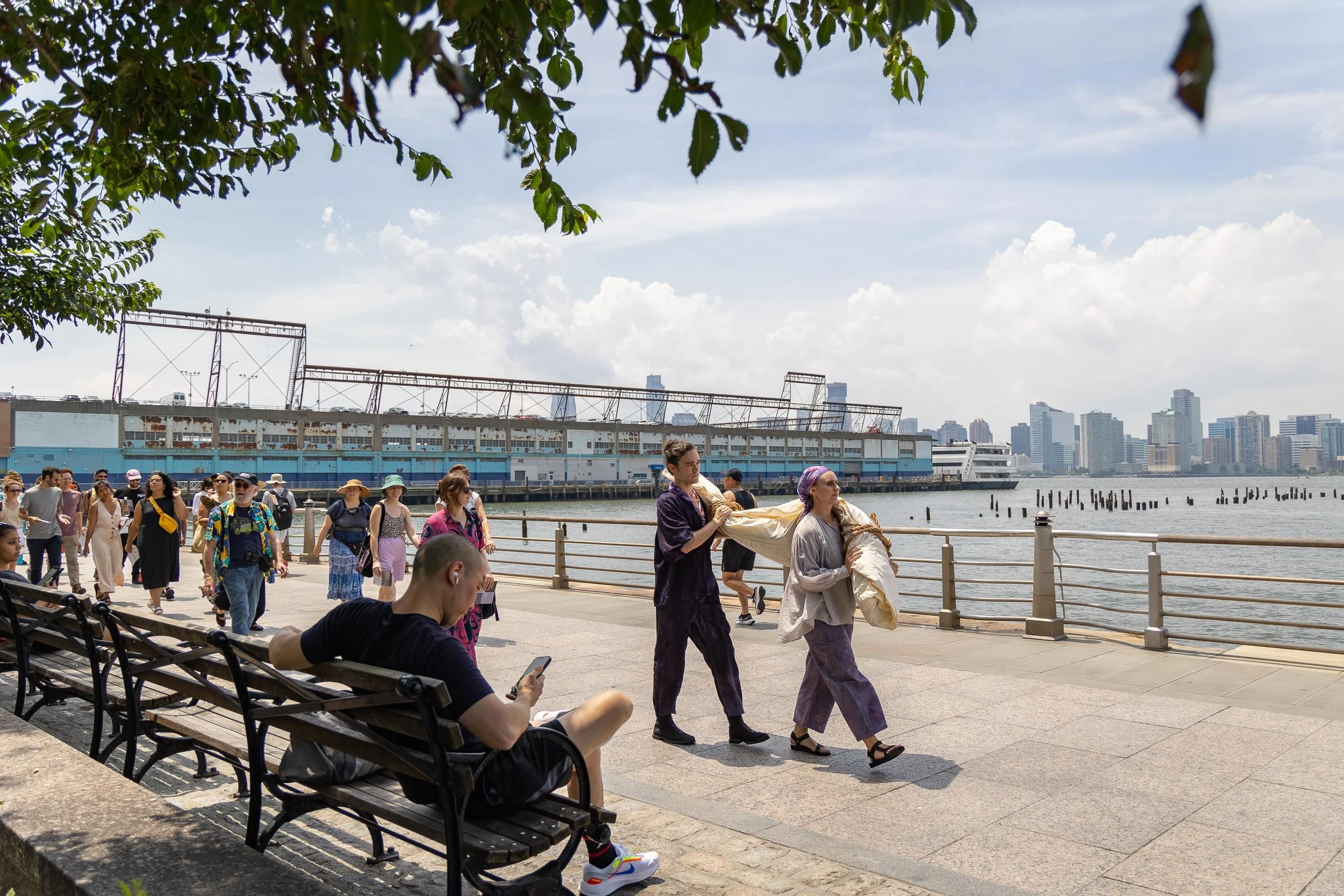Creators
We are a duo of research-based visual and performance artists exploring the colonial legacies of environments, material culture, and embodiments. In tracing how violent logics persist within present conditions, we believe we can collectively create alternative imaginaries and mold more just structures for the future.
Our shared training in Performance Studies attunes us to how power dynamics are naturalized in everyday life through repetition and how performance and aesthetics can reveal and reorient this ‘naturalization.’ Together, our process is steeped in archival research, oral history, and community organizing, individually applied to areas of migration, LGBTQ+ politics, environmental justice, and urban development.
We draw on our experience as educators to create social engagements that more critically situate ourselves and our audiences in relation to site-responsive histories. a haunted botany marks our first creative collaboration. Individually, our work has been presented in Los Angeles, CA; New York, NY; Cape Town, SA; Providence, RI; and Waterville, ME.
Photo Credit: Auden Barbour
AB Brown/Sister James
Sister James (they/them) is a research-based artist, writer, and educator based between Lenapehoking/Brooklyn, New York and the homeland of the Monacan /Charlottesville, VA. They create site-responsive, socially engaged, and participatory performances, rituals, and installations, drawing on oral history, archival research, and transdisciplinary collaborations. As a queer, trans artist with a disability, they are interested in the ways that gender and sexuality, time and memory, the senses, and movement are shaped by political and legal structures, science and technology, and the environment. They use performance to explore embodiment, collectivity/relationality, de/materialization and transformation as strategies for revealing and reimagining violent systems, logics and histories, expanding the limits of being and being together.
Their work has been supported by the MAP Fund, a scholar residency with the Portland Institute of Contemporary Art’s Time-Based Arts Festival, the Institute for Citizens & Scholars (formerly known as the Woodrow Wilson National Fellowship Foundation), and the New England Humanities Consortium. Their publications can be found in The Brooklyn Rail, the edited anthologies Queer Nightlife and Queer and Trans Migrations: Dynamics of Illegalization, Detention, and Deportation, and the scholarly journals Women and Performance: a Journal of feminist theory, Text and Performance Quarterly, and the Journal of African Cultural Studies among others. They received their PhD in Performance Studies from Northwestern University and are Associate Professor of Contemporary Performance at UVA.
Gwyneth Shanks
Gwyneth Shanks (she/her) is a curator, scholar, educator, and performance artist based between Lenapehoking/Brooklyn, New York and the homelands of the Wabanaki/Maine. In her work, Shanks draws on visual and performance studies, queer theory, critical race studies, and postcolonial theory in order to demonstrate how performance and performative art can expose the colonialist structures and histories embedded within arts institutions and contemporary art.
Her work has been supported by the MAP Fund, the National Endowment for the Arts, the Foundation for Contemporary Art, the Graham Foundation, and the Maine Arts Commission. As a performer, Shanks has worked with the Trisha Brown Dance Company, Maria Hassabi, Jérôme Bel, Meredith Monk, Marina Abramović, Alex Shilling, and Sarah Leddy. Her writing is published in ASAP/Journal, Theatre Journal, Cultural Dynamics, Third Text, Performance Matters, the Journal of Dramatic Theory and Criticism, Lateral, and X-TRA. Shanks’ writing also appears in a number of anthologies and art catalogues, including A.A.H.D.H. published with the Whitney Museum of Art and Side by Side: Collaborative Artistic Practices in the United States, 1960s-1980s with the Walker Art Center. Her book, Another Museum is Necessary: Transient Performance in the Wake of Institutional Critique, is forthcoming.
Shanks is Assistant Professor at Colby College. Prior to joining Colby, Shanks was a Mellon Postdoctoral Fellow at the Walker Art Center, participated in the Whitney Independent Study Program, and worked in the Academic Programs Department at the Hammer Museum. Shanks earned her PhD in Performance Studies from the University of California, Los Angeles.
